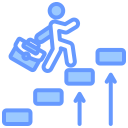Key Skills for Advancing in Software Development
Theme selected: Key Skills for Advancing in Software Development. Welcome to a practical, inspiring dive into the capabilities that move engineers from competent to impactful. Read, reflect, and join the conversation—share your experiences and subscribe for ongoing, skill-focused insights and stories.
Foundational Thinking: Problem Solving and Computer Science Basics
Great developers rarely tackle the whole mountain at once. They slice problems into coherent, testable chunks, define clear interfaces, and verify assumptions early. Share how you decompose complex tasks, and tell us which technique saved you in a tight deadline.

Foundational Thinking: Problem Solving and Computer Science Basics
Choosing a hash map over a list, or a queue over recursion, changes performance and readability. Learn when trade-offs are worth it, and document why. Comment with your favorite ‘small change, big win’ algorithm story that boosted speed or simplified code.
Code Craft: Clean, Readable, and Maintainable Code
Expressive naming is a daily superpower. Names reveal intent, shrink comments, and reduce cognitive load for reviewers. Post a before-and-after naming example from your codebase, and tell us how it changed comprehension during code reviews.

Version Control Mastery: Make Git Your Daily Superpower
01
Write commits that explain why, not just what. Atomic changes simplify rollbacks and code reviews. Share your favorite commit message template and explain how narrative commits improved your team’s onboarding and debugging speed.
02
Short-lived branches and protected main branches reduce risk. Pair them with thoughtful reviews and required checks. What branch strategy do you use—trunk-based, GitFlow, or something hybrid? Tell us why it fits your team’s cadence.
03
When production breaks, git bisect pinpoints the culprit quickly. Use blame to find context, not blame people. Share your fastest bisect success story, and how a disciplined history saved hours in a high-pressure incident.
Testing Mindset: Quality From the First Commit
Great tests double as documentation. They show intended behavior and constraints clearly. Post an example of a test that clarified a fuzzy requirement and invite others to share their favorite patterns for making tests readable and resilient.
System Design: From Components to Cohesive Architecture
APIs and services thrive on explicit contracts. Document inputs, outputs, and failure modes. Comment with a boundary you clarified that eliminated recurring defects, and how you aligned stakeholders on expectations before implementation began.
System Design: From Components to Cohesive Architecture
Architecture is choices under constraints. Caching can cut latency, but invalidation is hard. Distribution boosts resilience, but raises complexity. Share a trade-off you made, the metrics you monitored, and what you would change in hindsight.

Collaboration: Communication, Documentation, and Feedback
Short, scannable documents beat sprawling wikis. Include a summary, decision record, examples, and links to code. Share a doc template your team uses and how it changed onboarding speed, then invite readers to borrow and adapt it.
Collaboration: Communication, Documentation, and Feedback
Review to learn and to help, not to gatekeep. Focus on clarity, correctness, and risk. Offer actionable suggestions. Tell us your best code review guideline and how it improved team morale and delivery quality over the last quarter.
Collaboration: Communication, Documentation, and Feedback
Translate technical details into user value. Product empathy guides better prioritization and design. Comment with a story when user interviews changed your implementation plan, and encourage others to include support tickets in planning.

